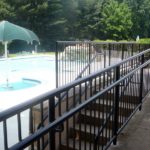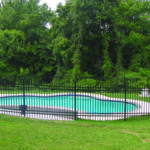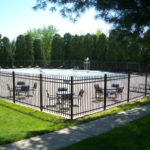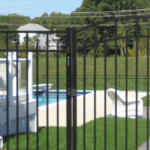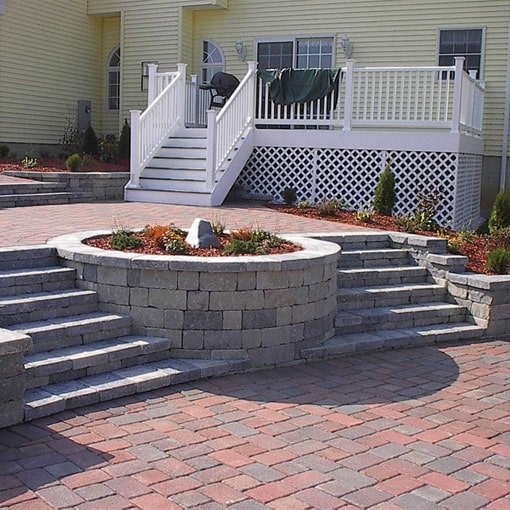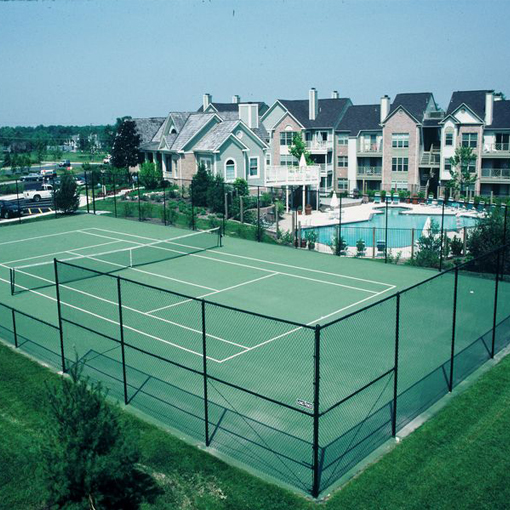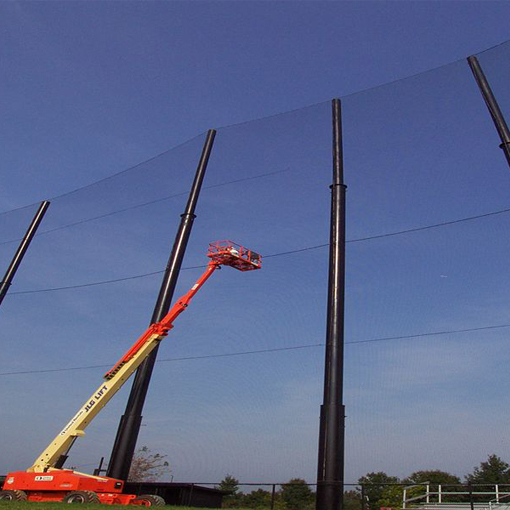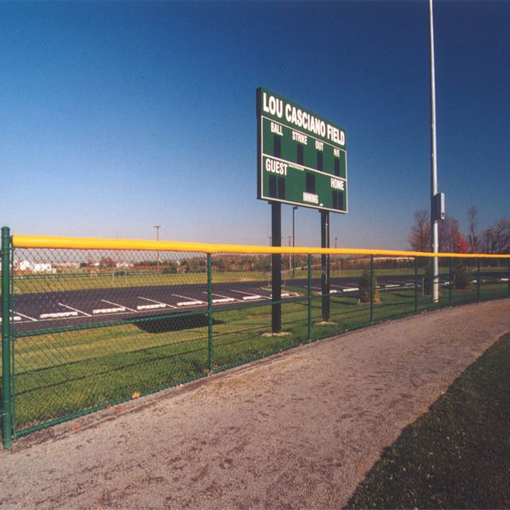Your Trusted Pool Fence company Since 1945
25% Off
Free Estimates
Interest-Free Financing*
Need a Commercial Estimate? Click Here
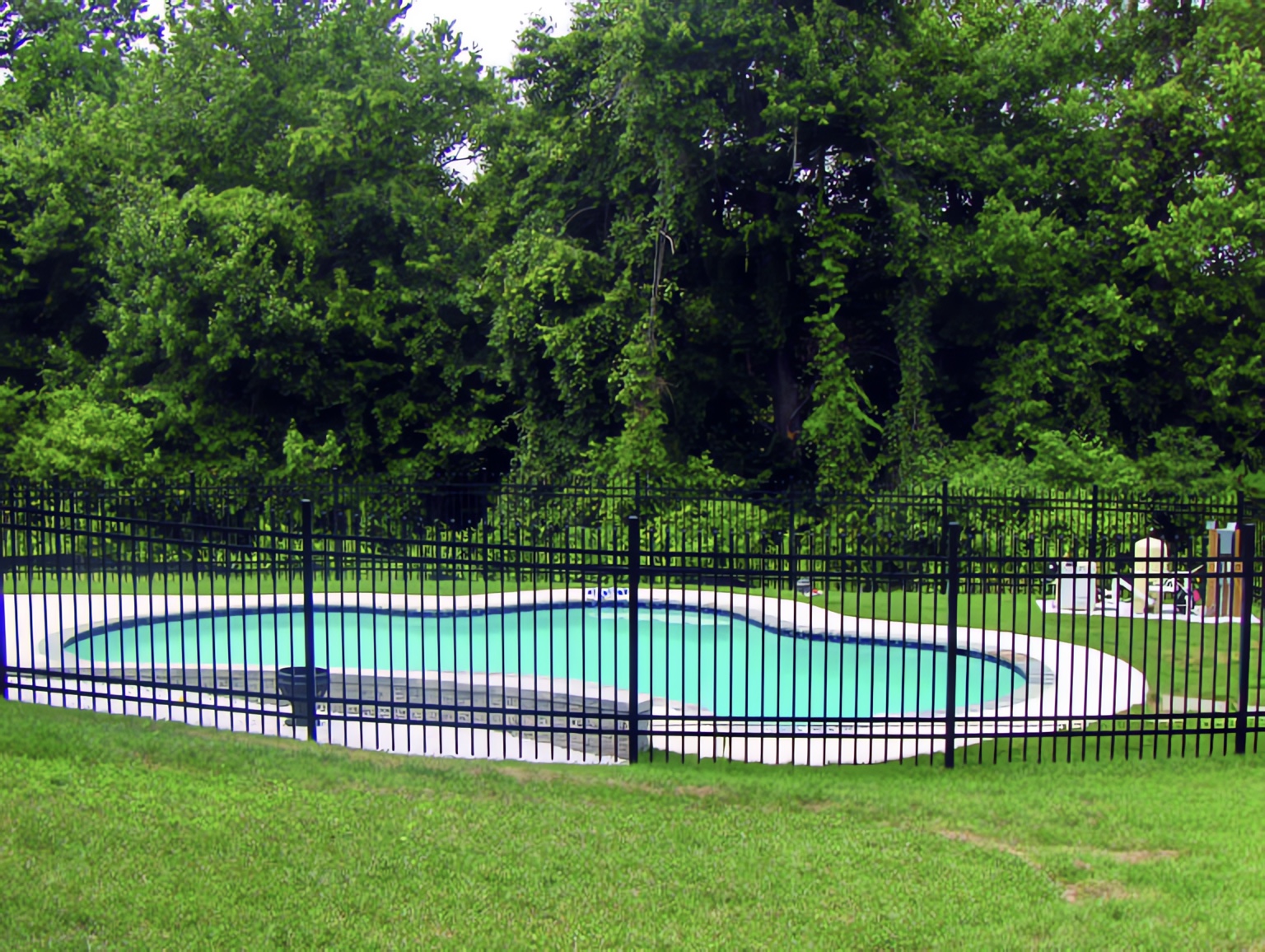
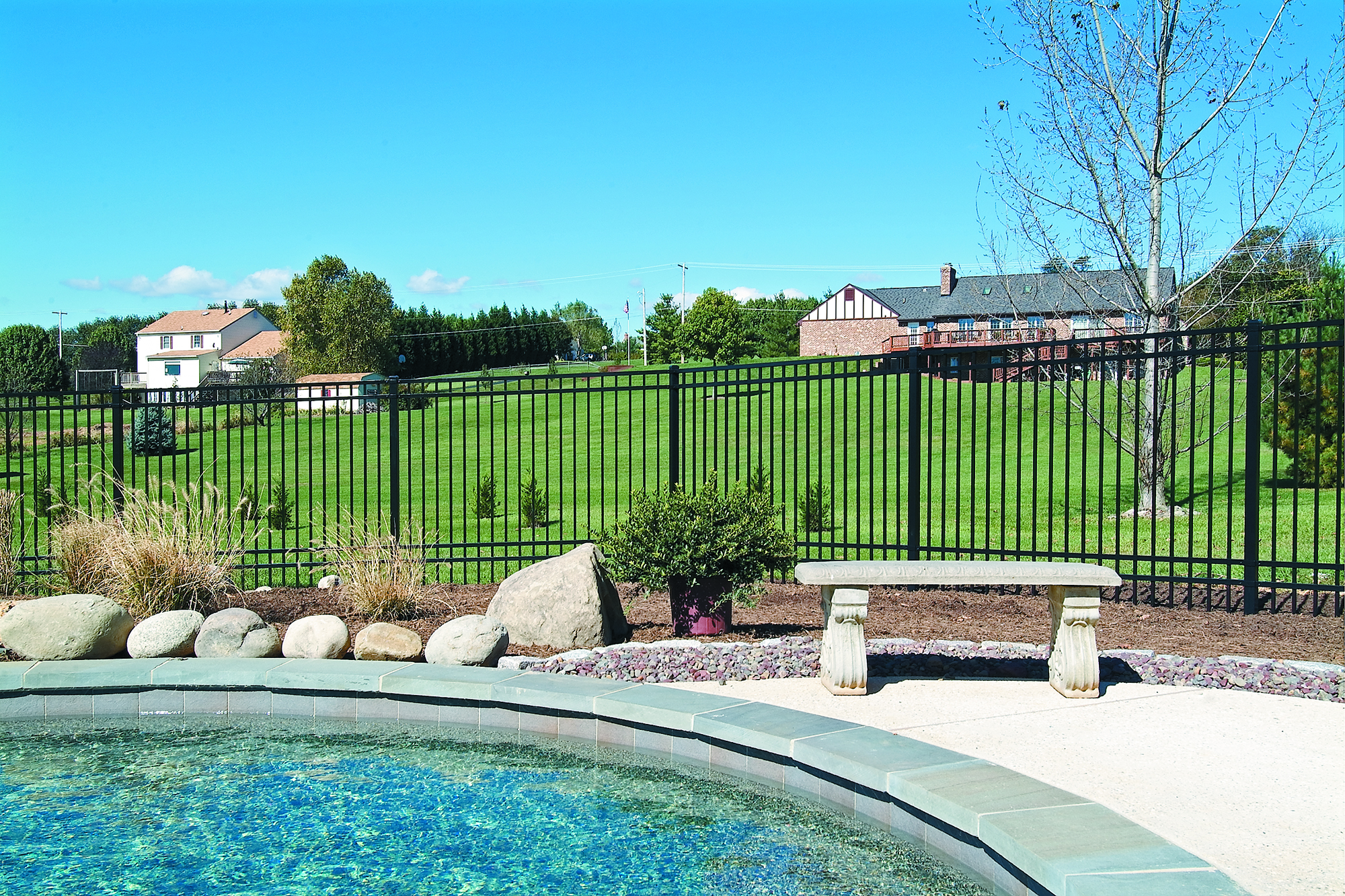
Pool Fencing
High-quality residential pool fencing that looks great
Swimming pools are an exciting new addition to any home. Instead of having to truck multiple kids over to the community pool, where the chlorine levels are so high they turn eyes red, instead there’s an opportunity for outdoor fun and exercise right in your backyard. Getting a pool isn’t a decision one should enter lightly, however. When it comes to upkeep and responsibility, there are several important facts you need to keep in mind.
Choosing Your Pool Fence
Pool fences are required in most states. Though restrictions vary, generally there are several requirements including height, picket spacing, and gate locking mechanisms. Over 3,000 people die each year by unintentional drowning, and the majority of these deaths among children ages one to four occur in home pools. Safety is essential for ensuring no accidents.
Popular choices for pool fences include wood fences, vinyl and wrought iron fences. Wrought iron is popular for homeowners who want to be able to preserve the view of the surrounding landscape. Wood fences and vinyl fences are ideal for privacy.
Some swimming pool fences are made to be removable. Though they will create an effective barrier, they can eventually be moved or replaced as necessary. This is most popular in areas where restrictions are less stringent.
- When you have an outdoor pool, debris will naturally collect in it. Tree leaves fall, dirt gets blown in, and insects find their way into the water. Typically, this debris is cleaned out first with a long-handled net known as a skimmer, and also through the use of your pool’s plastic collection basket. Anything that sinks to the bottom will need a pool vacuum to remove. Pools should be vacuumed every week.
- The water level of the pool needs to be checked and maintained. Splashing and evaporation will do its part, and not replacing the water can damage your pump. Why do most homeowners not empty their pool in winter? The water’s weight helps counteract the force of the ground pushing up.
- Modern pools are easier to take care of when it comes to maintaining proper pH levels and chemicals, but you will still need to routinely check and add solutions as necessary.
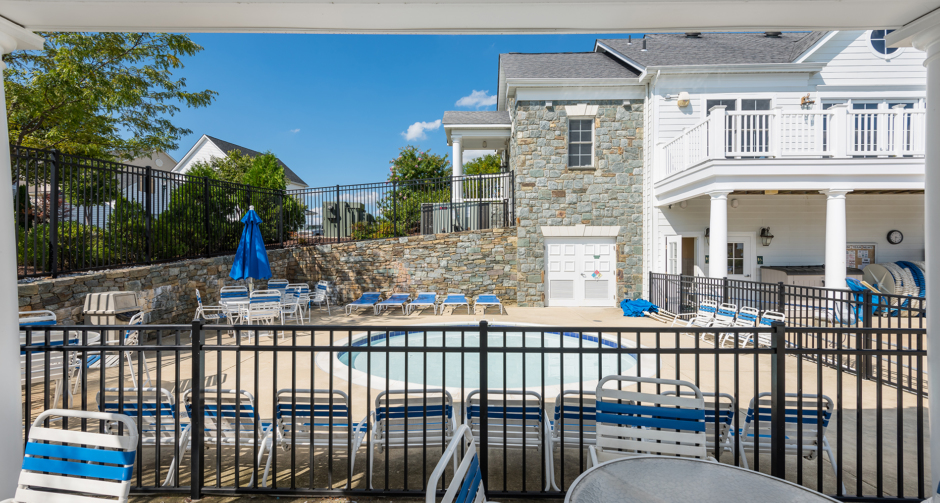
“Pool fences are required in most states. … Safety is essential for ensuring no accidents.”
There is currently no national standard regarding pool fences. Instead, ordinances and regulations vary state-by-state. The majority of states have at least some requirements in place that stipulate how high the fence must be, how the gate locks, and how far apart the pickets can be.
The CPSC has a downloadable PDF of recommendations that include making sure that outdoor fences are 48 inches high, and ensuring that they lack footholds children could use to climb over. Spacing of pickets is recommended to not exceed 1.75 inches. Above-ground pools should have both a fence for safety, as well as a removable ladder or a ladder blocked off by a secure barrier. Pool fence gates should have a locking mechanism, and should be self-latching and self-closing.
Our pool fences secure and add to the beauty and value of your home. A pool fence is an investment in your family’s safety and your property value. It protects you, your family, and guests from accidents, keeps your property secure, and enhances the visual appeal of the pool. A higher curb appeal means you can increase the value of your home. Plus, if you ever choose to sell your home, you’ll likely be able to get more money for it.
Find a pool fence that complements the aesthetics of your pool and home. Whether this means installing an ornamental wrought iron fence that gives your house and backyard a stately and elegant look, a white vinyl picket fence that lends your home a more carefree and all-American aesthetic, or something equally appealing depends on your tastes and the brand you are trying to build.
We also handle commercial pool fence!
Related Products


